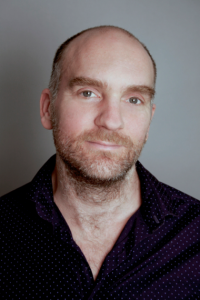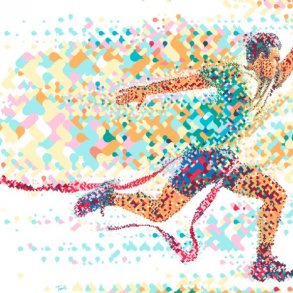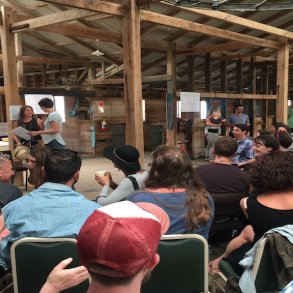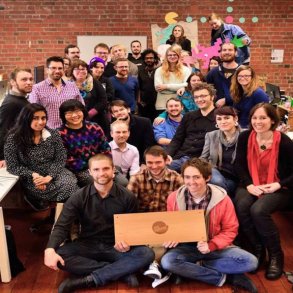By Nick Osborne, originally published in Huffington Post.
 For years I was proud to call myself a ‘social activist’, campaigning for human rights, saving rainforests, political reform etc. But I became disillusioned, feeling like I was putting in so much effort yet making such little difference. So I gave it all up and full of mid-twenties-idealism went to live in the woods in Ireland with some friends.
For years I was proud to call myself a ‘social activist’, campaigning for human rights, saving rainforests, political reform etc. But I became disillusioned, feeling like I was putting in so much effort yet making such little difference. So I gave it all up and full of mid-twenties-idealism went to live in the woods in Ireland with some friends.
Instead of trying to convince people to change what they were doing, we were going to lead by example and demonstrate sustainable living. We built shelters, dug a well, planted food, managed the woodland and spent a few months in utopian woodland bliss. But it didn’t take long for the group dynamics to kick in and for us to fall out with each other; on a dark stormy night, complete with hatchets, drugs, a dead vixen and goblins…
Bouncing out of that experience into a Permaculture Design Course, I was delighted to discover Permaculture as a design system for sustainability and went on a tour around North America, Europe and the UK visiting 30 different ecovillage, intentional community and sustainable settlement projects. I researched all aspects of their design: physical, legal, economic, community governance, resource use… From there I helped set up the Ecovillage Network UK and then moved back to Ireland to help set up an Ecovillage.
I got trained in Ecovillage Design, many aspects of sustainable living and Formal Consensus Decision-Making; I was well-equipped to make this project work. But it didn’t and I was left asking myself why?
From all my travels, study, research and participation in social action projects, I concluded that one of the biggest challenges human beings face in living sustainably on this planet is not so much about the physical technology – rather its so often the ‘group stuff’ that gets in the way. It’s about how we work together, learn together, make decisions together, deal with conflicts and basically just get things done together.
I realized that most social change movements have a serious skills deficit in the social technologies which businesses use to succeed. So I dedicated myself to learning these and sharing them. I went back to university to study an MSc in ‘Management Development and Social Responsibility’ and have spent the last 15 years learning many ways to improve how people work together. Now I have more tools in my toolkit than I can shake a stick at.
The way that I talk about my work now is in terms of ‘Self-Organization Beyond Hierarchy’. There is a growing recognition that hierarchy is a form of organization which is not a good fit for the complex and fast-changing times we live in, and people are seeking alternatives. Some people are seeking more flat and collaborative ways of working while others more agile and fractal structures, and my work now spans both.
Having taken a deep dive into the consensus-based, flat, collaborative approach where power is shared in collective decision-making processes, I co-deliver training and consultancy with my partner and psychotherapist Justine Corrie which we call Conscious Collaboration.
This is an approach which provides a map of the complex territory of self-organization and a range of options and the understanding about the kinds of choices involved in those options for people who want to pick the methods that best fit their organization, culture, mindsets, values and context to enable them to work more collaboratively beyond hierarchy.
I also work with Holacracy, in Evolving Organization, as a more structured and disciplined approach to create ways of working which are more agile and responsive to a fast-changing environment, which fit better for different kinds of organisation, culture, mindsets, values and context.
What drives me to do this is a belief that evolution in the volatile, uncertain, complex and ambiguous 21st century is calling for human beings to consciously participate in this evolution and adapt to it.
Even though evolution has always been moving broadly in this direction, we can now see our role in it more clearly. And part of our role here is to create organizations which are a better fit for these conditions than conventional hierarchies, and which (as Frederic Laloux puts it in ‘Reinventing Organisations‘), foster self-organization, encourage us to bring the whole of ourselves into our work and enable us to work with an evolutionary purpose.
To this end I have created a short, entertaining series of animations which I call Self-Organisation Beyond Hierarchy which explore and compare how six areas of organizational life look in three patterns of organization (hierarchy, collaborative and agile). These things are notoriously difficult to talk about and part of my reason for creating these films is to help provide a shared language for people to talk about and explore these things together.
I now work as a Trainer and Consultant to help people find the best ways to self-organize beyond hierarchy in a way that supports conscious evolution.
Pioneers for Change is a seed-bed for innovative thought. An activator of personal potential. A catalyst for collective energy. A community to drive social change.
Our annual, international Fellowship is open to anyone aged 28 — 108 years old. We gather change-makers — a business person, a community person, an investor, a thinker or doer — who are willing to harness their talents, energy and resources as a force for good. 2016 dates available soon. Pioneers for Change is an initiative of Adessy Associates.
Adessy Associates works with organizations and individuals in their quest to be a greater force for good in society.
About Nick Osborne:
Nick is an entrepreneur in the business of shifting paradigms. He catalyses the transition to ways of living, working, thinking and learning which enable us and our organizations to adapt to the volatile, uncertain, complex and ambiguous conditions of the 21st century and support a sustainable human presence on the earth.
Nick has 30 years experience in: private, public and non-profit sectors; employed, freelance, entrepreneur, volunteer. As a self-acknowledged control-freak, he appreciates how disruptive this can be in working with others. Recognizing how the desire for control also limits hierarchies in our complex and rapidly changing world, led him to seek alternatives.




